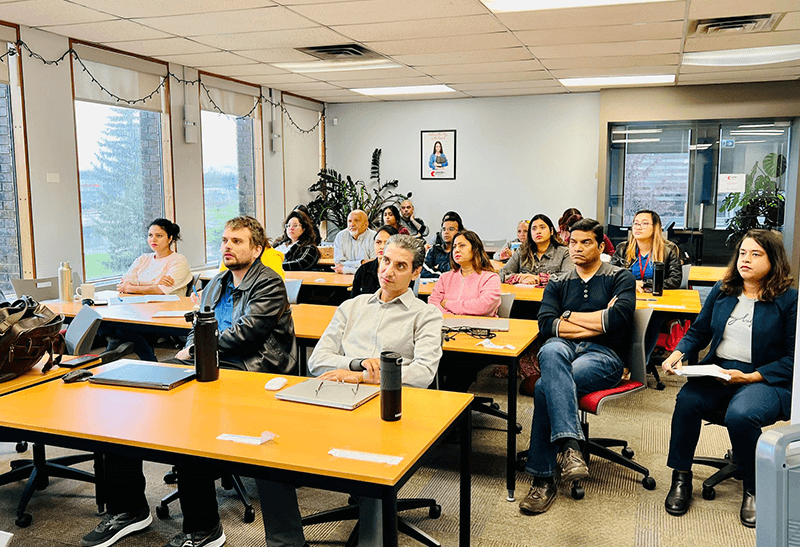Educational Assistant Program in Edmonton, Alberta
Do you like making meaningful differences in children’s lives? Do you thrive off busy, energy-filled environments? Are you interested in supporting exceptional learners in the classroom? Then a profession as an education assistant would be a great fit for you. Educational Assistants are valued members of the school team. Educational assistants assist with classroom management, instruction and provide one-on-one support for students. Educational Assistants play a key role in the implementation of Individualized Education Plans as well as Behaviour Support Plans for identified students.
Working in education is not only rewarding for you, but also for each and every student that you have the chance to interact with. You will not only be aiding in the development of successful students, but also in the development of outstanding citizens. The Educational Assistant Diploma Program at Campbell College prepares you with the knowledge, skills and experience necessary to thrive as an Educational Assistant by providing all students background on the theoretical and practical components of the job. All students will participate in more than 600 hours of instruction, accompanied by 320 hours of hands-on learning through an on-site placement.
Program Description
Educational Assistant (EA) diploma program at Campbell College prepares students for work in the classroom, and for getting a job in the field.
Admission Requirements
To be admitted into the Educational Assistant Diploma Program, you must have your Alberta Grade 12 Diploma or equivalent or have Mature Student Status.
For Mature Student Status, you must be 18 years of age or older and must provide all official transcripts or recognized equivalent GED, a current resume, and a written statement explaining why you are interested in the program. In addition, you must successfully undergo an admission interview administered by the College.
All students must submit Adult Criminal Record/Vulnerable Sector (ACRVS) and Provincial Child Abuse Registry (PCAR) check documents prior to attending the practicum. These must be less than six months old at the start of practicum.
English Language Proficiency Requirements
As English is the language of instruction at Campbell College, it is critical that all applicants demonstrate sufficient English Language Proficiency before they can be admitted into the program. Therefore, if your previous education was completed outside Canada and English may or may not have been the medium of instruction, you must submit proof of English language proficiency.
For admission requirements please contact info@campbellcollege.ca. .
